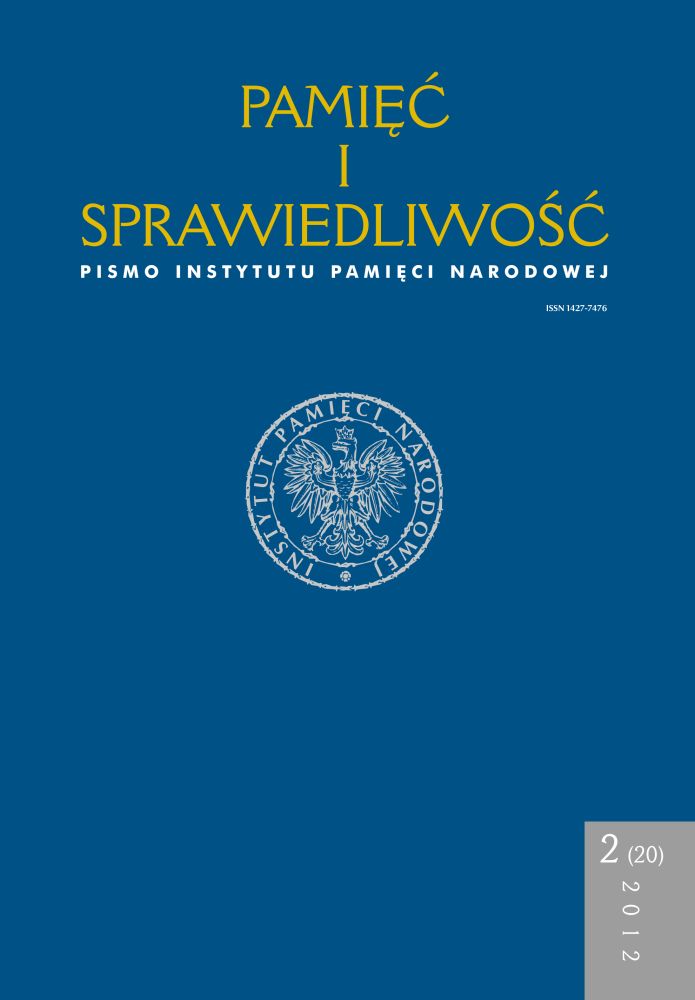Drogi i bezdroża młodzieżowej konspiracji. Klub Wykolejeńców (1950–1951) w świetle dokumentacji tajnej policji politycznej Polski Ludowej
Youth conspiracy – trial and error. Klub Wykolejeńców (1950−1951) in the light of the documentation of the secret political police of the PRL
Author(s): Bartłomiej Noszczak Subject(s): History, Recent History (1900 till today), Post-War period (1950 - 1989)
Published by: Instytut Pamięci Narodowej
Keywords: communist regime; Rebels’ Club; youth organisations; conspiratorial organisations; secret political police
Summary/Abstract: The Klub Wykolejeńców (KW, Rebels’ Club) was one of the numerous groups established by Warsaw students of general and higher secondary schools in the 1950s. These clubs usually bore unusual and provocative names. The secret political police of the PRL was of the opinion that these informal groups “demoralized youth” and strengthened its “negative approach to education and social life”. KW was composed of young people of intelligentsia families that were brought together by the memory of an independent Poland, animosity towards communist and their peers associated with the Union of Polish Youth, as well as a specific cult of the West (especially of the USA). Teenagers would meet at so-called receptions and preferred such so-called patterns of spending their free time. These patternswere notably divergent from the uniform and correct – both in the political and social sense – model of behaviours imposed on youth by dogmatists belonging to the party. Only a few of the more than ten members of KW undertook more radical anti-system activities, such as leaflet distribution. In the opinion of the UB, the Club had a “more radical face” in its time. It was closed due to the arrest of its members. Those who contested the “social justice system” most vehemently were to be sentenced during a showcase trial which was not held in the end. Nevertheless, a few club members were sentenced to imprisonment for a few years. Information that would enable drafting a more precise description of the phenomenon of informal youth groups is still lacking. Such groups, as in the case of KW, were not conspiratorial organisations in the strict sense, but they contested the politicaland social reality of communist Poland. This interesting issue still awaits in-depth studies.
Journal: Pamięć i Sprawiedliwość.
- Issue Year: 20/2012
- Issue No: 2
- Page Range: 261-280
- Page Count: 20
- Language: Polish

